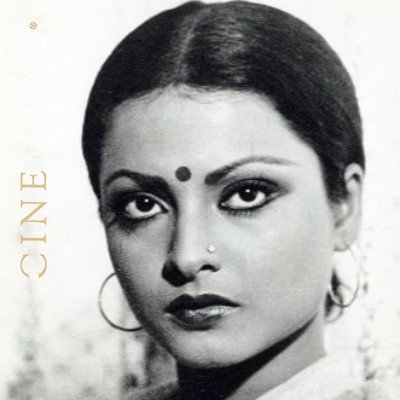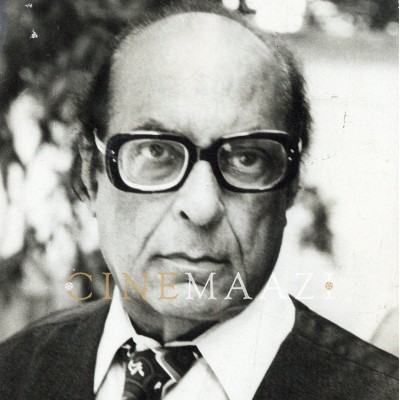Meenu Purshottam
Subscribe to read full article
This section is for paid subscribers only. Our subscription is only $37/- for one full year.
You get unlimited access to all paid section and features on the website with this subscription.
Not ready for a full subscription?
You can access this article for $2 , and have it saved to your account for one year.
- Born: 20 November, 1944 (Patiala, Punjab)
- Primary Cinema: Hindi
Meenu Purushottam was a playback singer in the Hindi film industry during the 1960s and 1970s. She also sang in languages such as Punjabi, Marathi, Bengali, Bhojpuri and Sindhi. Among the songs she rendered are Salaam tujhpe muqaddar sanwaarnewale from Arab Ka Sitara (1961) along with Mubarak Begum, O bhole bhaale jawab nahi tera from Char Chakram (1965), Deke take ka chhalla, Kheench kaanta kheench kaanta uyi from Do Aankhen (1974) along with Mohammed Rafi, and Ho teri laal chunariya latke hai from Duniya Hai Dilwalon Ki (1966) along with Shamshad Begum. In her own way, she managed to make an important mark among the musical legends of the day.
She was born 20 November, 1944 into a family of farmers in Patiala, Punjab. She received her training in classical music from Pandit Laxman Prasad Jaipurwalle. Once she joined the film industry as a playback singer, she was trained by music director Madan Mohan. Meenu debuted in Hindi films at the age of 16 with the duet Na na na re in the film Taj Mahal (1963). Legendary music director Roshan took her under his wing, and gave her the opportunity to render the song penned by Sahir Ludhianvi. It was a duet with Suman Kalyanpur. Meenu would later recall that she was much shorter than Suman. This posed a problem, as in those times a single microphone would be shared by singers during the studio recording. In order to make up for the difference in height, the song was recorded at Mehboob Studios with Meenu standing atop a platform.
She went on to work with music directors Laxmikant Pyarelal (Kranti, 1981), S D Burman (Baat Ek Raat Ki, 1962), O P Nayyar (Yeh Raat Phir Naa Aayegee, 1966), Bappi Lahiri (Arman, 1981) and Jaidev (Do Boond Paani, 1971) among others.
Meenu did have solos but they were far and far between. Her most popular work as a playback singer in films was in the role of a partner rather than the lead. Yet she shone in songs such as the mischievous Jaidev composition Raat piya ke sang from the lost film Prem Parbat (1973)! She also toured with playback singers like Mohammed Rafi; however, she had to make way for singers like Asha Bhosle or Lata Mangeshkar when it came to recording songs for films. Despite this, she made her mark in female-female duets.
To her credit, she stood her ground in a world known for its ruthlessness. Her innocence and lack of years perhaps protected her from feelings of rivalry between the senior singers and herself. She thrived on collaboration rather than competition, in itself a rare and wonderful thing in the film industry. In time, she shifted focus to non-film music, namely ghazals. They appealed to her with their potential for meaning, depth, and a more serious philosophy. Ghazals such as Zakhm rahguzaar ke helped tap her depth as a singer, which playback might have fallen short of displaying. Based on her many years of experience, she recorded LPs of ghazals as well as bhajans with HMV, Music India such as Ranj Mein Rahat, Rehe Guzar, O Salone Sanwaria, Bhakti Ras, Krishna Ras, Dashaavtaar, Vaishnava Bhajans (Gujarati), Man Mandir Mein Sai and Jago Jago Maa Jawaalapaa.
She also sang in her mother tongue Punjabi, as well as in Marathi, Bengali, Bhojpuri, Sindhi and other regional languages of India. Gaining special insight into the Hindi language, she kept improving the range and effectiveness of music. She also displayed new creations in Bhentaans and devotional and meditational music for her fans via her own company name O. B. USA. Meenu Purushottam eventually left India and settled in Houston, USA where she began teaching classical Hindustani vocals. A young student of hers at the time, remembers her as being a strict teacher, but full of laughter and great stories. She also performed at local functions where she continued to hold her audiences fascinated.
References
http://myswar.co/artist/meenu-purushottam
https://mrandmrs55.com/2014/04/28/minoo-purushottam-appreciation-from-a-former-student/
https://www.imdb.com/name/nm1264025/bio?ref_=nm_ov_bio_sm
Meenu Purushottam was a playback singer in the Hindi film industry during the 1960s and 1970s. She also sang in languages such as Punjabi, Marathi, Bengali, Bhojpuri and Sindhi. Among the son










.jpg)



